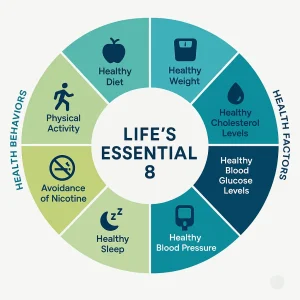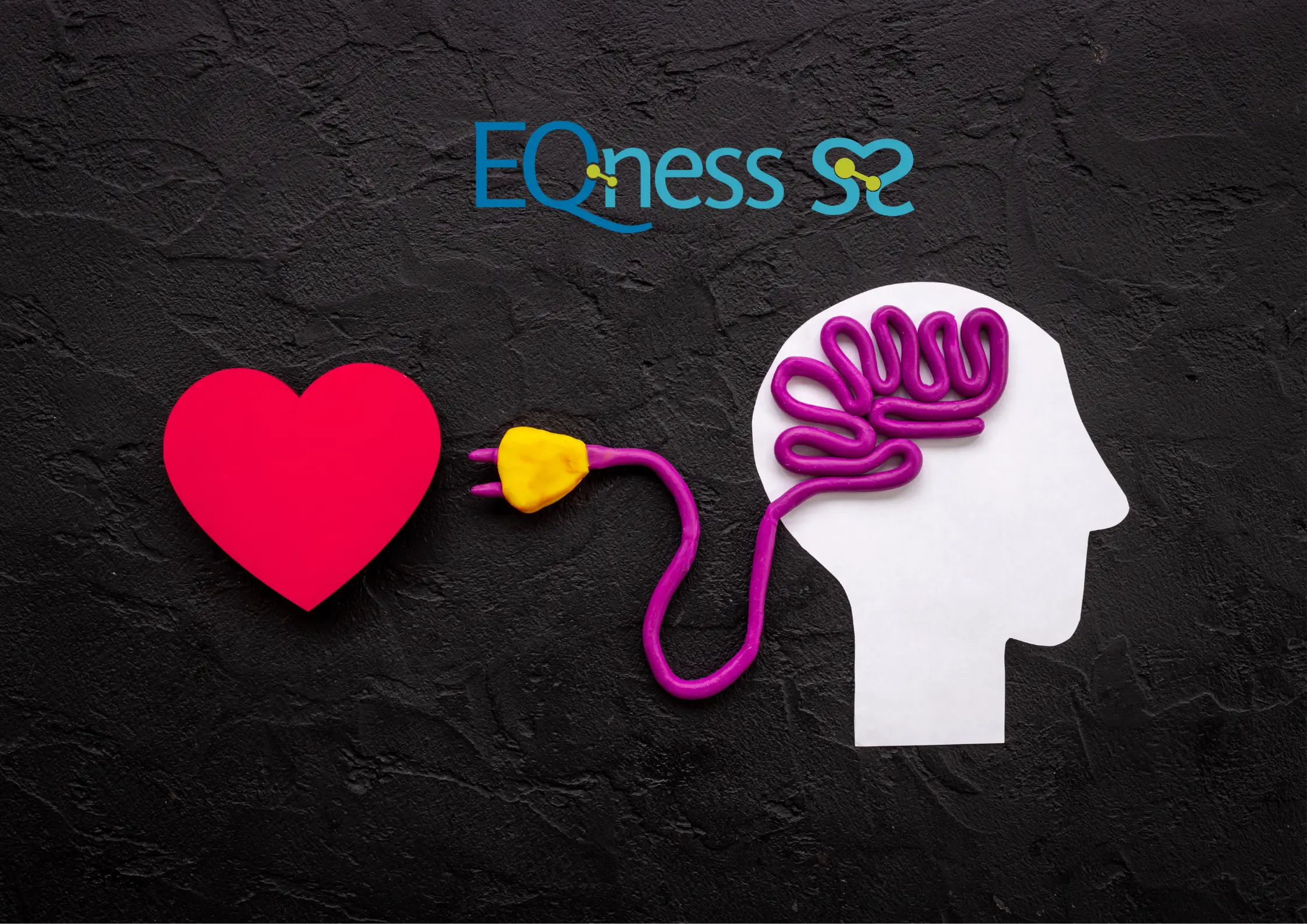Cardiovascular disease (CVD) remains the leading cause of death worldwide. Yet up to 80% of premature heart disease and stroke are preventable. That is why, every 29 September, World Heart Day shines a spotlight on this global challenge. Attention usually goes to the familiar risk factors: smoking, high cholesterol, hypertension, obesity, and diabetes. These remain critically important. But what about the daily pressures we all face? Could they also be affecting the heart? According to research, the answer is yes. Psychological stress is one factor that continues to be underestimated despite strong and growing evidence.
This year’s theme, “Don’t Miss a Beat,” is a call to broaden our understanding of heart health. Recognising stress as a risk factor opens the door to practical strategies that strengthen both the heart and the habits that sustain it.
Stress and the Heart: The Evidence
Stress is not “just in the mind.” It places a real burden on the body, including the heart and vascular system. Chronic strain from work, financial pressure, social isolation, or emotional trauma undermines cardiovascular health. And it is not only long-term strain that matters. Acute stress, such as an outburst of anger or sudden fear, can even trigger heart attacks or irregular heartbeats within hours.
Large-scale studies have confirmed the link between stress and cardiovascular health. For instance, in the Multi-Ethnic Study of Atherosclerosis (MESA), people reporting work-related stress were less likely to achieve good cardiovascular health across lifestyle and biological measures. Similarly, the INTERHEART and INTERSTROKE studies identified psychosocial stress among the top ten modifiable risk factors for heart attack and stroke. Meta-analyses add further weight, showing that individuals experiencing job strain, social isolation, or chronic adversity have a 30–50% higher risk of developing coronary heart disease (Steptoe & Kivimäki, 2012). These risks are evident across genders, ages, and socioeconomic groups.
What Actually Happens When We Are Under Stress?
The brain activates two systems: the hypothalamic–pituitary–adrenal (HPA) axis and the sympathetic nervous system. This cascade releases cortisol and adrenaline, which raise blood pressure, heart rate, and vascular tone. In small doses, this is adaptive, it helps us respond to challenges. But when the system is triggered too often or for too long, the effects may become harmful:
- Chronic stress promotes inflammation, impairs endothelial function, and accelerates atherosclerosis.
- Acute stress can destabilise plaques, provoke arrhythmias, or cause stress cardiomyopathy (Takotsubo syndrome), particularly in women.
- Mental stress–induced myocardial ischaemia (MSIMI) is seen in up to 70% of patients with coronary artery disease and often occurs without pain, yet it predicts poor outcomes.
- Experimental studies consistently show that stress reduces heart rate variability, raises blood pressure, and increases electrical instability that may lead to dangerous rhythms.
Clinical Consequences: Stress Can Trigger Events
Stress is not a background factor. It is a real and measurable trigger for cardiovascular events. Research has shown:
- Episodes of anger can increase the risk of heart attack fivefold within just two hours.
- Natural disasters, terrorist attacks, and even stressful sports matches have been followed by spikes in heart attacks and sudden deaths.
- Women appear especially vulnerable. They are more likely to develop mental stress-induced ischaemia and stress cardiomyopathy, due to differences in brain activation and vascular responses.
- Stress also worsens recovery after a heart attack, increasing the risk of recurrence and mortality.
Protective Factors and Interventions
Evidence supports the following actions to protect the cardiovascular system from the damaging effects of stress:
- Exercise: Regular aerobic and resistance exercise reduces stress reactivity, improves autonomic balance, and strengthens resilience through neuroplasticity.
- Cardiac rehabilitation: Participation in structured programmes that include stress management is associated with up to 70% lower mortality in coronary artery disease compared with non-participation.
- Psychological therapies and resources: Psychological resilience, optimism, social support, and a strong sense of purpose are linked with better cardiovascular outcomes. Cognitive behavioural therapy (CBT) and structured stress-management sessions are particularly effective for patients with depression or high stress, and cardiac rehabilitation programmes perform better when these components are integrated.
- Workplace initiatives: Organisational interventions that address work-related stress and promote employee wellbeing are associated with improved cardiovascular health.
Guidelines Are Catching Up
Recognition of stress as a cardiovascular risk factor is slowly making its way into the field, but there is still a long way to go. In 2022, the American Heart Association updated its framework for cardiovascular health from Life’s Simple 7 to Life’s Essential 8, adding sleep health to the existing set.
The framework now includes four health behaviours — healthy diet, physical activity, avoiding nicotine exposure, and healthy sleep — and four health factors: healthy body weight, healthy cholesterol, healthy blood glucose, and healthy blood pressure.

Psychological health and social factors are recognised as central to cardiovascular outcomes, but they were not included because of challenges in measurement. Still, it is well established that stress influences many aspects of cardiovascular health, shaping diet, sleep, activity, smoking, blood pressure, and glucose. Recognising these effects is key to a more comprehensive approach to prevention.
World Heart Day: A Call to Action
The science is clear: stress affects the heart through both biological pathways and the ways we cope with it. It can trigger acute cardiac events and silently worsen long-term cardiovascular health. Yet it remains underestimated in clinical practice and public awareness.
On this World Heart Day, we can reflect on how to change that. Small shifts across different settings can make a real difference:
- In healthcare, conversations about cardiovascular risk can also include the role of stress.
- In workplaces, wellbeing initiatives that include stress-management programmes and encourage healthier routines can protect long-term heart health.
- For individuals, practices such as regular movement, meaningful social connection, and stress-reducing habits can help strengthen both mind and heart.
- At a policy level, integrating stress and mental health into prevention strategies can broaden the reach of cardiovascular care.
The heart is deeply connected to the brain, the body, and the world we live in. Protecting heart health means protecting people from the hidden burden of stress, so that we and those we love do not miss a beat.
References
- Ogunmoroti O, Osibogun O, Allen NB, Okunrintemi V, Commodore-Mensah Y, Shah AJ, Michos ED. Work-related stress is associated with unfavorable cardiovascular health (from the Multi-Ethnic Study of Atherosclerosis). J Am Heart Assoc. 2024;13:e035824. doi:10.1161/JAHA.124.035824
- Popovic D, Bjelobrk M, Tesic M, Radovic D, Milicic B, Stanisavljevic D, et al. Defining the importance of stress reduction in managing cardiovascular disease – the role of exercise. Prog Cardiovasc Dis. 2022;70:84–93. doi:10.1016/j.pcad.2022.01.008
- Steptoe A, Kivimäki M. Stress and cardiovascular disease. Nat Rev Cardiol. 2012;9:360–70. doi:10.1038/nrcardio.2012.45
- Vancheri F, Longo G, Vancheri E, Henein MY. Mental stress and cardiovascular health – Part I. J Clin Med. 2022;11(12):3353. doi:10.3390/jcm11123353
- Henein MY, Vancheri S, Longo G, Vancheri F. The impact of mental stress on cardiovascular health – Part II. J Clin Med. 2022;11(15):4405. doi:10.3390/jcm11154405
- Ernst H, Scherpf M, Pannasch S, Schmitz S, Grimm A, Figulla HR, et al. Assessment of the human response to acute mental stress – an overview and a multimodal study. PLoS One. 2023;18(11):e0294069. doi:10.1371/journal.pone.0294069
- Lloyd-Jones DM, Allen NB, Anderson CAM, Black T, Brewer LC, Foraker RE, et al. Life’s Essential 8: Updating and enhancing the American Heart Association’s construct of cardiovascular health. Circulation. 2022;146:e18–43. doi:10.1161/CIR.000000000000
Need a Helping Hand?
If you are looking for personalised support to strengthen mental health, manage stress, and enhance overall wellbeing, I can help. My approach draws from Acceptance and Commitment Therapy (ACT), mindfulness, and neuroscience to support individuals in reconnecting with what truly matters—especially when stress, anxiety, or trauma make presence feel difficult.
Please don’t hesitate to reach out. I’m here, to help.


